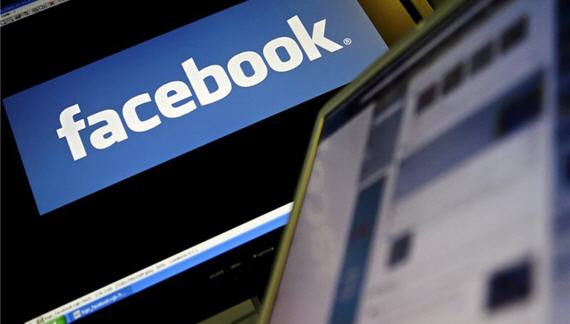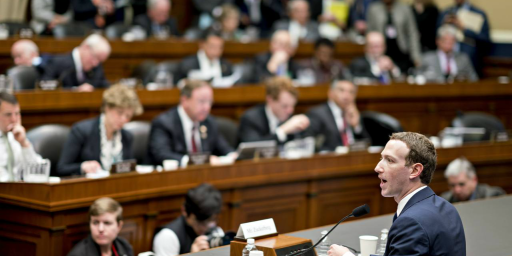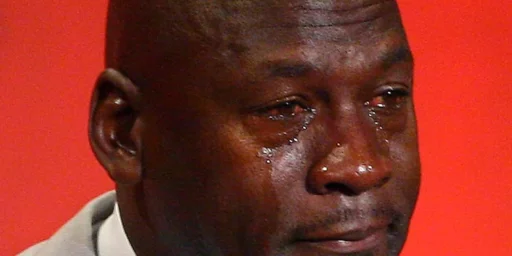Running For Office Someday? Your Facebook Page May Say Otherwise
Those images on your Facebook page may come back to haunt you if you decide to run for office someday.
If you’re young and have political ambitions, you might want to be careful what you post on your Facebook page:
Politics today is rife with examples of candidates having to explain why they were posing shirtless for pictures poolside with a skimpily clad woman (Representative Aaron Schock of Illinois), simulating sex acts on a toy (the Congressional candidate Krystal Ball of Virginia), or carousing on Halloween night dressed as a ladybug (the Senate candidate Christine O’Donnell of Delaware).
“I think all of us know that politicians would have to confront the Facebook skeletons in their closet, but that it would be in 20 years, not in two years,” said Anil Dash, a technology consultant and pioneer of the blogosphere when it was just beginning in the late 1990s. “By the time the next generation comes into power, they’ll just assume this is how it’s always been.”
And the list of embarrassing moments caught on film goes on. Blake Farenthold, a Republican candidate for Congress in Texas, had to defend himself after pictures surfaced right before the election of him wearing pajamas with little yellow ducks as he stood grinning next to a woman in black lingerie.
A Congressional race in Ohio became awkward after Rich Iott, the Republican candidate, was shown in a photo dressed up as a Nazi for a World War II re-enactment.
The candidates themselves are not the only ones being confronted with images from the past. In 2008, photographs of President Obama’s speechwriter Jon Favreau groping a cardboard cutout of Hillary Rodham Clinton made their way onto blogs. This year, in the Minnesota race for governor, Facebook photos of the Republican candidate’s under-age son drinking alcohol were disseminated, forcing the candidate, Tom Emmer, to put out a statement on the matter. He called the episode “a serious mistake” and said his son had paid the consequences.
With so many examples to point to already, could this mean that drunken Facebook photos of the presidential candidates of 2024 and of the Supreme Court justice nominees of 2040 are already out there?
Probably, and the experience that Virginia’s Krystal Ball had this year is likely to be repeated many times before the body politic decides how to handle the fact that people do somewhat embarrassing things when they’re young:
Ms. Ball, a Democrat, was stunned when she found out that six-year-old party pictures were circulating online. In them, she was wearing a Santa cap and provocative lacy hosiery while holding and putting her mouth around a sex toy. The story went viral, getting attention from news media outlets as varied as Gawker and National Public Radio.
“I think I was the No. 3 most-Googled term in the whole world over some stupid gag I played when I was 22 years old,” Ms. Ball said in a phone interview on Wednesday, the day after she lost her election.
While her opponent already had a comfortable advantage in the Republican-leaning district by the time the pictures came out, Ms. Ball’s experience raises the question of whether American culture will ever evolve to the point where voters tolerate pictures of future leaders in various states of inebriation and undress.
Ms. Ball, a certified public accountant, has used the experience as an opportunity to warn of a potential chilling effect on tomorrow’s leaders. Candidates, she argued, should not be shamed out of a race because of mistakes made in their youth. “I had a whole lot of people who were older than me saying they were feeling grateful that Facebook and digital cameras weren’t around when they were growing up,” she said. “I am not the only person with stupid photos out there, and I would hate to have some young man or young woman think, ‘I can’t run for office because I did something stupid at a party however long ago.’ “
This would seem to be especially true given the fact that, before the era of digital photography, Facebook, and Twitter there were doubtless plenty of politicians who had engaged in some sort of stupid behavior or another when they were younger. The reason we didn’t learn about it is because people didn’t talk about, and there was no photographic evidence that would follow them around for the rest of their lives. On some level, it seems unfair that people who are now in their 20s would be held to a different standard just because someone took a picture with their cell phone once, especially since they probably aren’t doing anything worse than their older peers did when they were young.
The other side of the coin, of course, is that young people need to realize that a digital image lasts forever and that what they do when they’re 19 may come back to haunt them when they’re 39. That picture of you drinking out of a beer bong may not exactly be the image you want to convey when you get older.







I think by the time my generation are the major economic and political force (say 25 – 35 years) society will have been forced to accept a multitude of candidates with youthful racy pasts. While advising young people to be careful as to what’s put on facebook may be sage advice, it’ll be advice completely unheeded.
Already almost anyone who has graduated college in the last 7 years have a full pictorial history of their youthful indiscretions, and I doubt that’s changing. That’s a full generation of future leaders who, for them, embarrassing past pictures will be the complete norm.
My advice–keep your privacy settings tight, and if you run, defriend anyone whom you can’t trust completely, and have a few prepared statements ready.
I agree with Neil, but add a caveat. We are assuming that social attitudes will become more liberal over the next 20-25 years. Is that absolutely guaranteed? What if we become, as a society, more conservative, less forgiving of youthful transgressions?
But more to the point, did Ms Ball’s “indiscreet” photos have any significant impact on her failure to get elected? I don’t think so. As I posted on Facebook on Election Day, while I’d have loved to vote for someone named “Krystal Ball,” I couldn’t do so because she is wrong on all of the issues that matter to me.
But her photos? Well, she’s cute, and her photos were amusing (honestly so, not because she’s a political opponent or anything), but none of that has a significant impact on my political opinions. And while it’s easy to speculate that the folks ’round these parts were highly offended by her youthful antics, I don’t think we really know that to be the case.
One of many reasons why the only thing you’ll find on my facebook is farmville posts and the occasional “how’s the weather” style post…
Boyd,
Krystal Ball had no realistic chance of winning that election regardless of whether or not the photos had come out, of course.
But her case is merely one example of a phenomenon that we’re likely to see more of in the coming years.
Those kinds of photos may not have much impact on people like you and I, but that probably isn’t true of other voters.
Ms Ball is probably not a good example to judge this by, being a liberal Democrat. A Republican (of any location on the political spectrum) would be a better test.
Perhaps not, although in a different district she might have been a more viable candidate
social media can make you and break you. ms ball needs to learn.